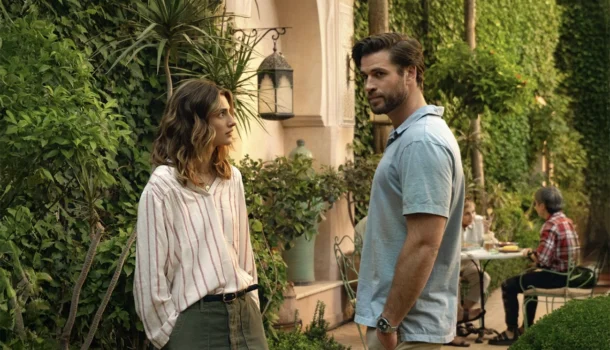In the void between what one longs for and what one is still capable of feeling, contemporary romantic dramas have begun to lose their breath, stifled by a growing disbelief that turns love into terrain too unstable to build any lasting certainty upon. The old maxim of redemptive passion — the one that once promised to weather storms, dissolve pain, and fill existential gaps — no longer stirs with the same force. Not because the feeling has lost its value, but because it has been recoded by haste, suspicion, and a kind of emotional fatigue that corrodes human connection. Modern love, beyond its forms, has lost its immunity to cynicism and must now reinvent itself amid the exhaustion of promises that once carried the collective hope of emotional redemption.
“Lonely Hearts” steps into this shifting landscape with a gaze that avoids both easy melancholy and condescension, focusing instead on a rarely explored relational dynamic: the encounter between a middle-aged woman with discreet ruins and a younger man, equally fractured, still searching for balance. Director Susannah Grant sidesteps the traps of cliché through a sensitive and unfussy approach, seeing in this generational mismatch fertile ground to revisit the idea of intimacy — not as catharsis, but as a fractured coexistence between expectations and limitations. The age gap between Katherine and Owen is not a narrative hurdle but the backdrop for deeper inquiries: what part of ourselves can we still salvage when the other gently disrupts our foundation?
The film’s atmosphere isn’t shaped by major twists but by quiet tremors — the kind that shift certainties without fanfare, like the moment when silence between two people becomes more eloquent than any dialogue. Love here is no shield against the world, but an uncomfortable mirror, forcing each character to confront the pieces of themselves that no longer fit. Grant’s script does not absolve anyone, nor does it assign chance the responsibility of resolving inner turmoil: each choice — or its absence — is examined with the precision of someone who understands that growing up means surrendering the comfort of tidy narratives.
Katherine Loewe doesn’t travel to Morocco in search of healing, but in need of a reason to keep writing — which, for her, is the same as staying alive. Her creative block, contrary to the ready-made metaphor, is not an artistic drama but the outcome of emotional exhaustion that corroded her most intimate certainty: the belief that she is worthy of love. Owen Brophy, pulled along by an emptied-out relationship with Lily, hesitates between the familiarity of the known and the vertigo of the new. His indecision captures the essence of a generation that has forgotten how to choose, haunted by the notion that every decision is also the loss of all other possibilities. Their closeness doesn’t stem from enchantment, but from mutual weariness — and it is precisely in this fatigue that the film finds its most honest spark.
Marrakech, with its textures and labyrinths, serves less as an exotic backdrop and more as a spatial metaphor for each character’s internal detours. The city doesn’t comfort — it tests. And it’s in this strange terrain, far from the safety of their familiar selves, that Katherine and Owen begin to see each other not as salvation, but as temporary company through the night. Grant offers no grand revelations but opens narrow cracks — and it is through those that the film’s density seeps in. Time here doesn’t move toward a comforting conclusion, but toward the productive discomfort of a lingering question: what if love isn’t what was missing, but what remained after everything else failed?
Laura Dern, with her ability to convey defeat without losing her dignity, anchors the emotional narrative. At her side, Liam Hemsworth surprises by reining in the heartthrob and revealing a disoriented man — vulnerable not from weakness, but from honesty. There is one scene — raw, unexpected — where all that goes unsaid weighs more than any confession, and in that moment it becomes clear: this isn’t a film about who loves more or better, but about who dares to stay when love appears in its most disarming form — not as a romantic plot, but as a zone of risk.
Amid so many stories where love is the answer, “Lonely Hearts” stands out by making the question its gravitational center. There are no promises of eternity, no final declarations. There are, instead, two lives in transit, two damaged subjectivities trying to coexist without canceling each other out. And that, in today’s world, might be more revolutionary than any happy ending.
Film: Lonely Hearts
Director: Susannah Grant
Year: 2024
Genres: Romance/Drama
Rating: 8/10

